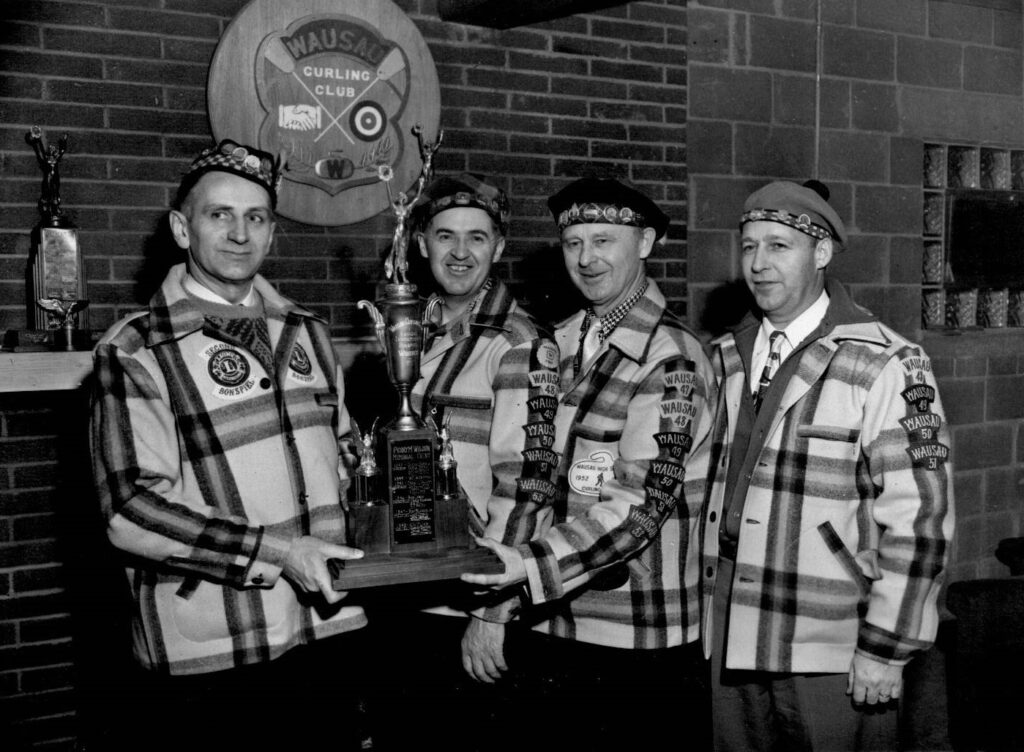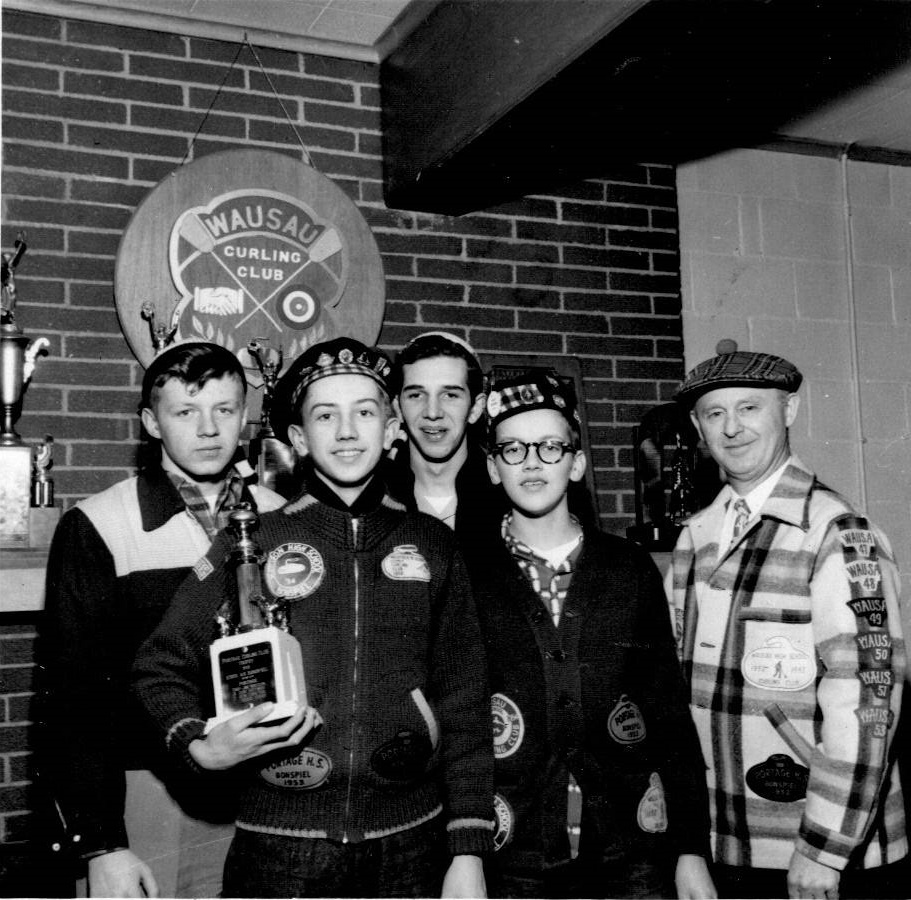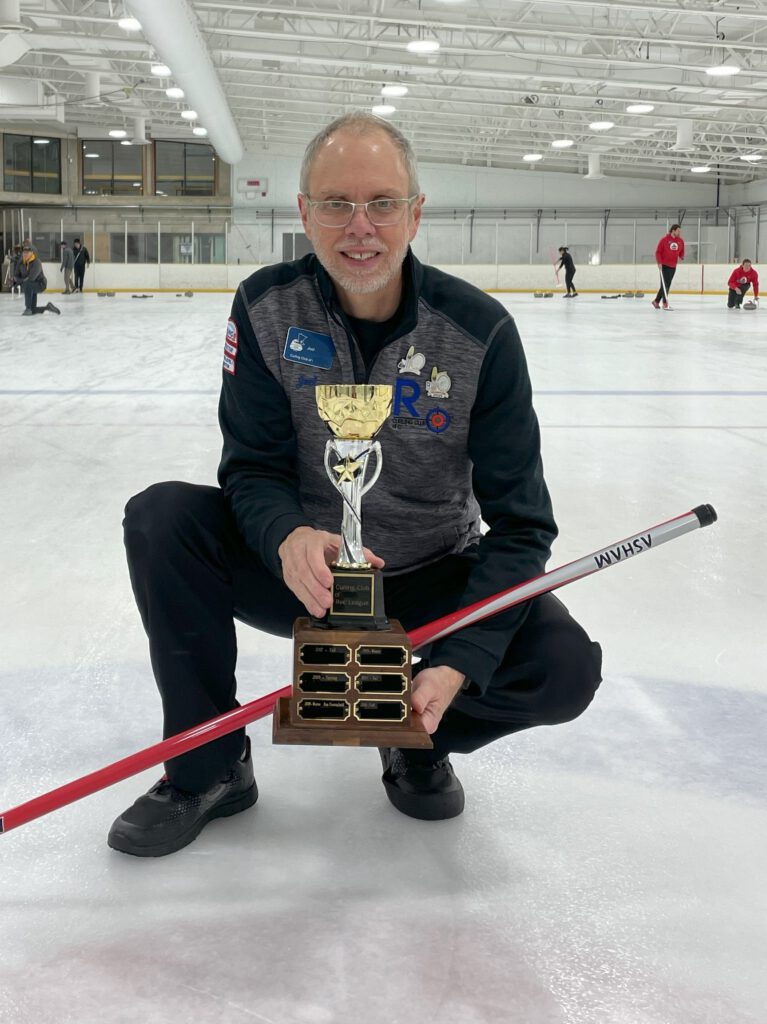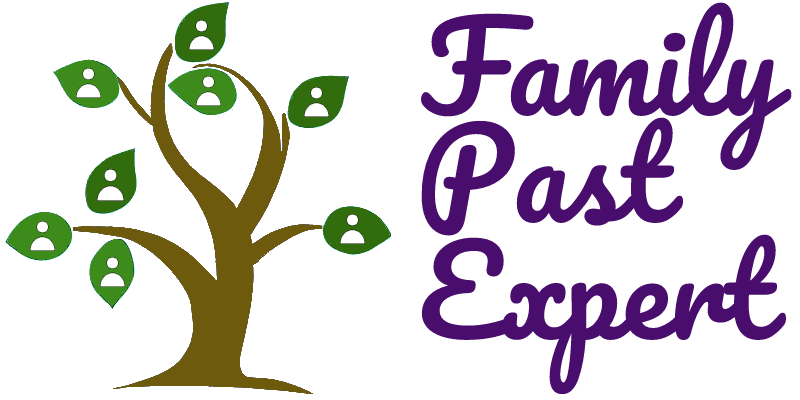A guest post by Joel.
leg·a·cy
/ˈleɡəsē/
noun
noun: legacy; plural noun: legacies
- the long-lasting impact of particular events, actions, etc. that took place in the past, or of a person’s life.
I have been involved in curling for a little over six years now. Yes, I am talking about that strange ice sport that involves rocks and brooms and even more strangely does not include ice skates.
I was raised in small towns where the only known connotation of the word “curling” had to do with girls’ hair. The first time I recall seeing the sport was as a child. My family was visiting my paternal grandparents in Wausau, Wisconsin, and I believe we dropped Grandpa off so he could curl at the well regarded Wausau Curling Club. I don’t remember partaking in the sport or learning much about it at that time. I just remember Grandpa strangely sliding down the ice on one knee.
The next curling memory I have was watching it on our basement television. I think it may have been the Winter Olympic games when I was about 14 years old. There was that funny ice sport again. I watched intently trying to understand how this sport worked. There were familiar words like house, button, broom, sweep, and stone but they obviously meant different things in this new context. The words and the context were familiar to my father and upon faintly hearing them from upstairs, he soon found his way to our basement. That was the first time that I remember finding out that my father had also curled. I decided that someday I should maybe give this strange sport a try.
In junior and senior high school curling wasn’t an option for me. I participated in football and swimming but was not a particularly good athlete. In college I got into racquetball and I considered myself able to play at a competitive level. But outside of racquetball classes and playing friends and co-workers, I never participated in any organized tournaments. For a time in my young adult life I participated in community volleyball and softball leagues where I worked, but sports always took a back seat to just about everything else going on in my life.
Around this same time I also married a genealogist. Now I didn’t marry my wonderful wife of decades just because she was a genealogist and of course she is so much more than that. But being a genealogist means she finds old stories. She showed me newspaper articles from the Wausau Daily Record-Herald in the mid 50’s of my paternal grandfather, uncle, and father participating in the sport of curling in and around their hometown of Wausau, Wisconsin.
And not just participating. They were dominating.

My father’s high school curling team won the first WIAA (Wisconsin Interscholastic Athletic Association) state prep invitational bonspiel (a curling tournament) in 19531. My grandfather and his curling team won the 1953 Wausau Curling Club invitational bonspiel out of 32 teams2 and the 1954 Wausau Curling Club championship3. And then as a high school senior my father and my uncle were on a team together that won a Wisconsin State high school curling title in 19544.

When in my mid-fifties my wife read that my local curling club was holding a “Learn to Curl” event, I decided it was finally time. After that first taste of this wonderful sport, I jumped in with both feet. I traveled to participate in out of state bonspiels. I joined the Board of Directors of my local Curling Club of Rochester. I became a United States Curling Association (USCA) certified level 1 curling instructor and I have taught dozens of people this great all-ages sport. Those activities filled my long desire to “give this sport a try,” and it helped me connect with my paternal family’s history in this great sport.
Another newspaper article that my wife found indicated that my grandfather’s curling team lost the 1952 all Lions Club bonspiel5. It said, “The finals on Sunday produced a close event that had first Krueger, then Haemmerle ahead. The game was decided in the last end with the last stone.” While on a family history information gathering trip in 2021 with my wife to the Marathon County Historical Society in Wausau, I came across a display of local curling history. In that display was the curling jacket of one A. P. Haemmerle and on that jacket was a championship patch for the 1952 Lions Club Bonspiel. Having now lost a few curling matches myself, I suddenly felt a close connection with what was surely my grandfather’s disappointment of losing that close match on the last shot.
But I did not yet feel as I had lived up to my paternal family’s curling legacy. Maybe unfairly to myself, given my father, uncle, and grandfather’s successes, I felt I needed to win some competitive curling events. At my age state high school championships and the Olympics are (probably) out of reach. But I thought that winning a bonspiel and maybe even a league championship as my grandfather had were not unrealistic goals.
My first goal was achieved when my team won a bonspiel in 2021. And then this season my curling team and I won our local curling club’s league championship. I now feel a tremendous sense of accomplishment, satisfaction, and a profound connection with my paternal family’s legacy in the sport of curling.

I have been thinking a lot lately about the word “legacy.” For me, my definition of legacy is “the long-lasting impact of particular events, actions, etc. that took place during a person’s life and that makes them feel connected with their past.”
I encourage you to find a way to connect with whatever you consider to be your family’s legacy. Even if you don’t win any championships, I guarantee you won’t regret it.
Footnotes:

